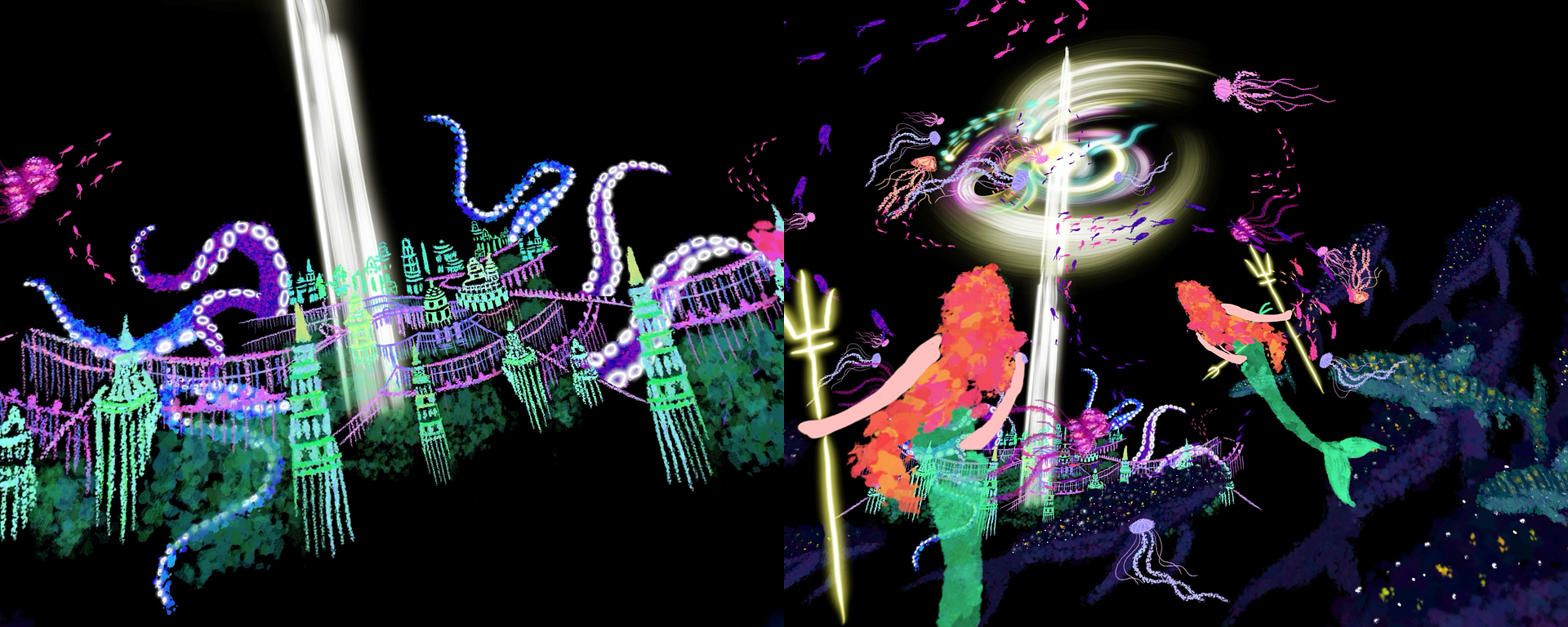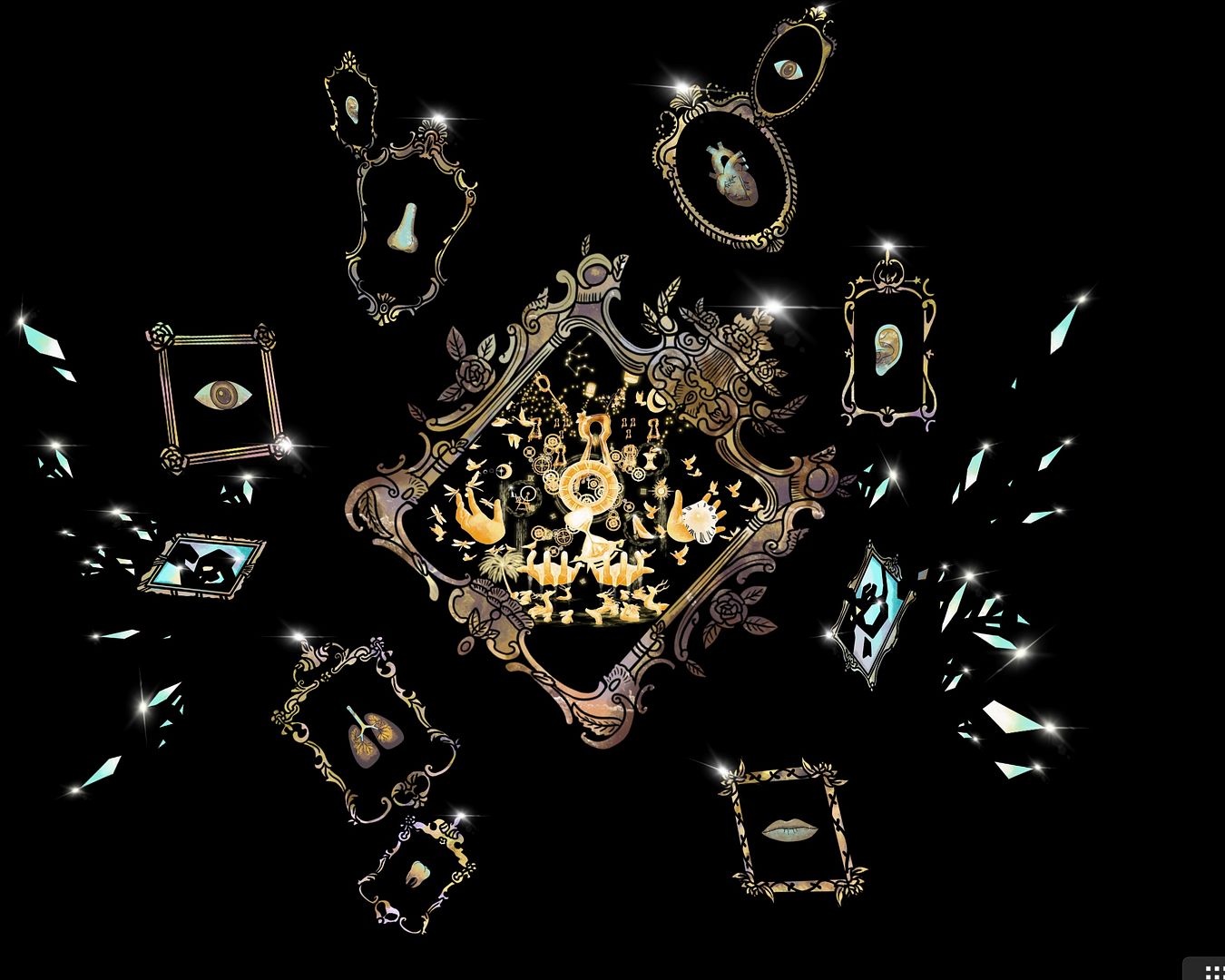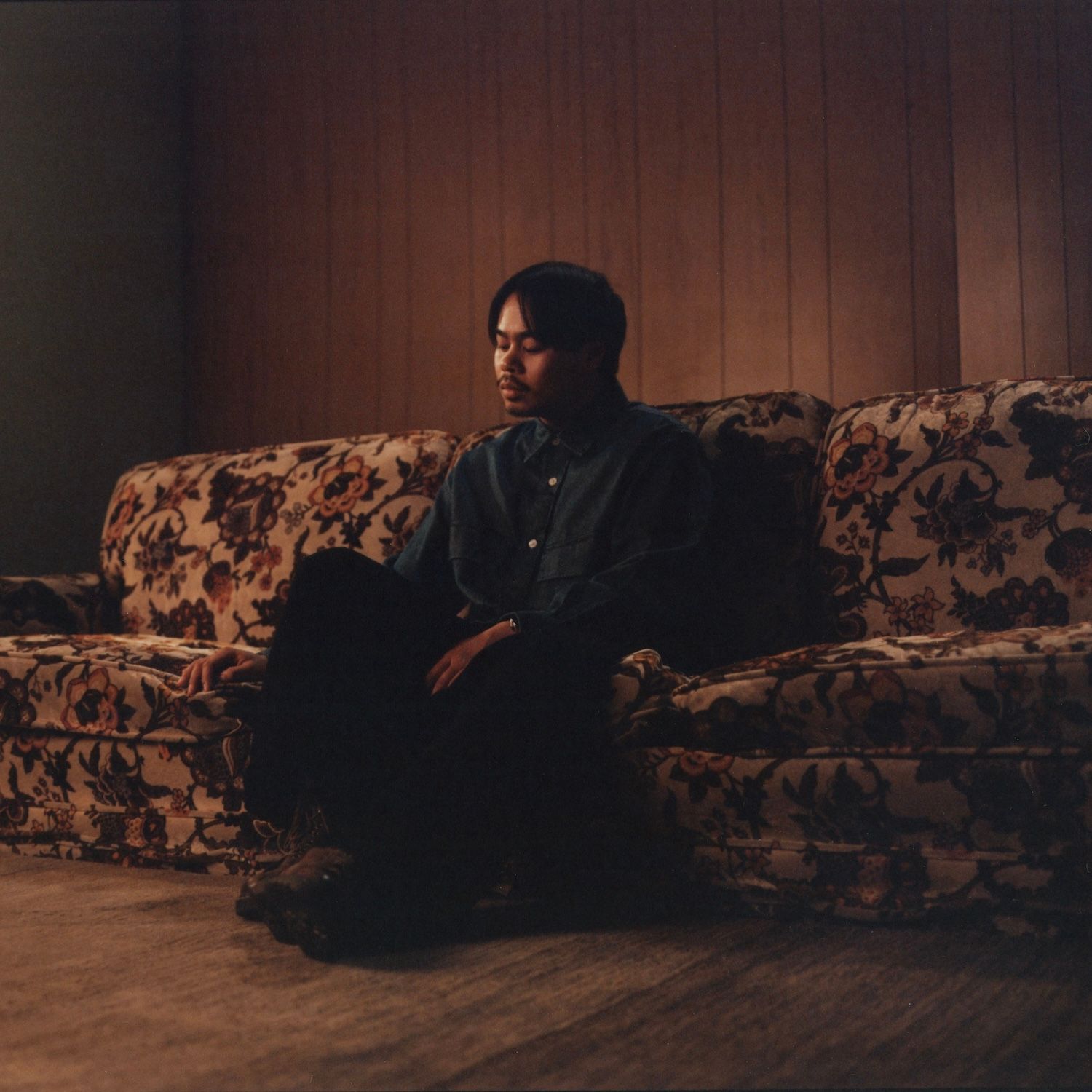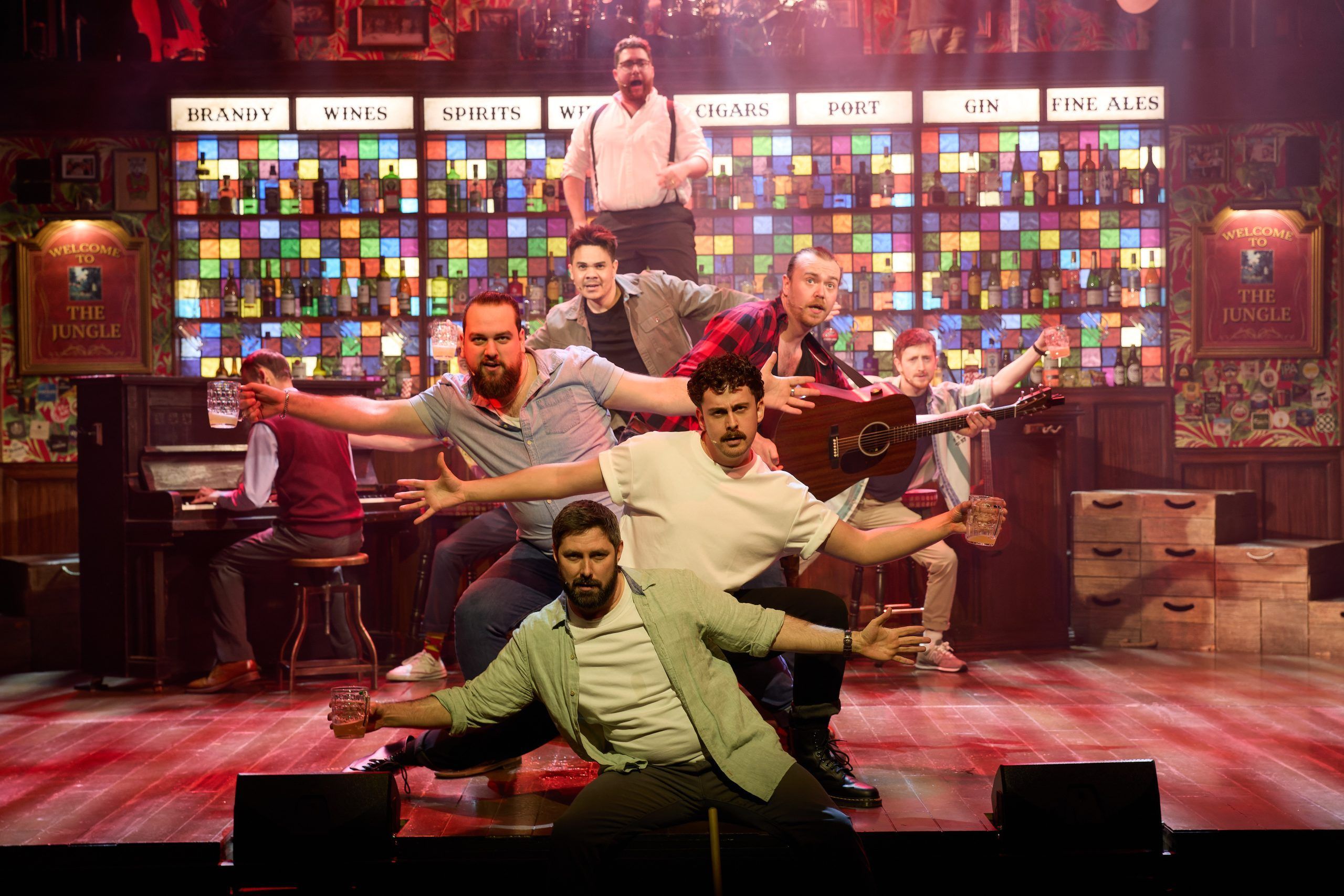Junying Jiang is a Chinese-born artist based in London and has live in the UK from an early age. This dual cultural experience profoundly shapes his creative practices rather than just the backdrop of his biography. Jiang has developed a deepen sensitivity toward difference, negotiation and relationally. His qualities reflected in his work, which comes from a blend of mythological archetypes such as childhood wonder of mythology and fairy tales, his work foster the wonders with personal experience and blend digital art into traditional form.
Jiang’s educational background has further shaped his artistic orientation. During his previous study on Illustration at Camberwell College of Arts, University of the Arts London, he caught interests in digital illustration model and progressively developed an experimental and critical approach on image-making. Jiang was urged to experiment with different forms, composition and test his limits of narrative, it built the foundation for him to shift his practice from traditional illustration model. Since then, he continues his study at the Royal College of Art, where he continues focus on social and cultural engagement, and strike to create immersive experiences with his creation on multiple sensory ways.
The development of Jiang in his art practice can be clearly traced, his work between 2023 and 2025 shows a significant shift in medium. His first major practice in 2023, 12 Olympians & Sacred Animal Symbols, demonstrated the science of celebration of Greek mythology, the illustration interview animals, human, gods, and historical landmarks. From the first glance, the work might appears to be a homage, yet the symbolic logic exposes the real critical issue: how myth operates a system of values, representing the complicated interactions in moral and power structures with human and divine. Jiang emphasizes this contradiction by Jiang’s use of gold to represent divinity, contrasted with black and white releases the tension.

The following year, his work Kingdom of Atlantis (2024) represented both a continuation of his previous work in 2023 and a departure to exploration of digital illustration model. The work continuity lay in his sustained interest in mythology, yet Jiang moved from still illustration into the practice of digital illustration model. This piece explores the legendary underwater realm – Kingdom of Atlantis, using a lot more bright colors and a whole new storytelling method. It maintains a similar mythological story background, composition and art style that effectively preserves his ideas. However, the medium shift is not simply technical. To embrace motion, sound and digital immersion into the work, he redefined the myth as a living narrative rather than a fixed cultural norm.

Medium:Mental Canvas, Kingdom of Atlantis (2024)
Inspired by the previous two projects, Jiang developed a new project Once Upon a Time (2025), Jiang advanced into more introspective terrain. Drawing on his interest on framework of fairy tales, he crafted an allegorical digital illustration model that explored fear and personal growth during adolescence. This work represents a deepening of narrative complexity: whereas 12 Olympians externalised myth as cultural object, and Atlantis myth as spectacle, Once Upon a Time (2025) interiorises myth, rendering it a metaphorical lens for his own becoming. Here, the boundary between collective cultural narratives and private memory dissolves. With the idea of naming the work as ‘Once Upon A Time’ which serves as a sense of cliché opening line in fairy tales, the purpose of Jiang is to use this worldly familiar phrase to quickly pull attention of the audiences into a shared wonder where magic and the extraordinary begins.


Medium: Mental Canvas,Once Upon a Time (2025)
Growing up in between China and UK, he occupies what Homi Bhabha calls the “third space”, a state of zone where cultural differences becomes a source of creativity rather than conflict. His multicultural experience allows him to become more playful, flexible on myths and fairy tales. In his hands, myths are not rigidly defined, they are narratives that open to reinvention. He is able to use his creativity to reimagine Greek gods, the underwater kingdoms and fairy tale trapes with a completely different storyline. In an increasingly globalized art world, where identity and cultural translations become a intense issue, Jiang’s almost childlike, naive lightly perspective allows him to navigate these questions with curiosity and nuance.
In an era where digital media can often seen as skimmed superficially, Junying Jiang ‘s development are layered experiences, as seen in his projects, they are slowing people down. His traditional illustrations and digital illustration models is not a linear progression, but rather a dialectical one. Each project builds upon the previous while continually challenging its presuppositions. His practice demonstrates how animation and digital illustration can act as critical tools, destabilising inherited myths while simultaneously producing new spaces for identity and memory. By embracing new media and build more technical skills, his commitment is aim to pushing boundaries. From traditional illustrations to digital illustration models, Junying Jiang demonstrates his understanding of the inherent meaning of the medium itself, he wish to express that the way a story is told is as important as the story itself.
By James Mitchell




